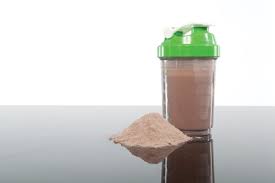Protein is a macronutrient found in many foods such as meats, dairy products, nuts, and beans, to name a few. It’s made up of things called amino acids, the building blocks of lean body tissue that promote healthy skin, hair, bones, fingernails, and also muscle.
This then leads to the question, which what kind of protein supplement should I be taking?
Here’s the breakdown…. not all protein supplements are created equal. Proteins are made from a collection of up to 20 amino acids. Of those, 9 are classed as essential (they can’t be made in the body so must be consumed through food intake), the other 11 are known as non-essential amino acids (the body can make them from other things). Complete protein sources have been shown to be optimum tissue growth and repair, superior to incomplete sources. Foods that contain all 9 essential amino acids are classed as complete protein (animal proteins such as milk, eggs, meat, poultry and fish). Examples of incomplete proteins would be plant proteins such as lentils, beans and nuts, although soy is an exception and is deemed one of the only plant proteins said to be complete. Getting a wide range of protein sources on board is the best way to ensure you cover all the bases. Most of the time, it’s a good idea to get your protein from whole food sources, however, protein supplements can be a handy addition to meeting your daily protein requirements, especially if you’re tight for time or on the go all day.
With so many different protein sources available, each are more suitable to some people than others. Hopefully this will give you an idea as to which one might be for you.
The most common protein supplement on the market is whey protein, so let’s start there. Milk is made of 2 things, whey and casein. What’s the difference?
1. Whey vs Casein
The main difference between whey and casein is the absorption rate. Whey has been found to be absorbed faster than casein, thus it tends to be more popular as a post workout supplement. So what kind of whey?
2. Whey Protein Concentrate vs. Isolate vs Hydrosylate
Bit confusing, isn’t it? Protein is derived from various food sources and is “concentrated” by removing the non-protein parts. This leaves a powder that’s about 70-80% pure protein, the rest mostly carbohydrate and fat. Taking the concentration process a step further results in protein isolate (more of the fat and carbs are removed), thus slightly purer protein and a tad more expensive. Even pricier again is hydrosylate. The reason it dearer is due to the fact that’s its slightly quicker absorbed. For an elite athlete who’s training multiple times a day, this might become factor. For the average gym enthusiast and 90% of people, the whey concentrate will do the job. Put the money you save towards good quality food. Anything else you should know?
3. The Other Options
For individuals who don’t like milk or simply can’t tolerate it, there are a few other kinds of protein you can try:
-Egg protein, pretty much what you’d imagine, it’s the protein part of an egg (the white).
-Soy protein, one of the few plant protein sources that offer all of the essential amino acids.
-Rice Protein, although often thought of as a very high carbohydrate food, brown rice is becoming a standard source for vegetarian protein powder.
-Hemp Protein, derived from the seeds of the cannabis plant. Another vegan/stoner friendly option, but tends to be one of the most expensive protein powders available.
-Pea Protein, comes from the yellow split pea, making it a popular choice for vegetarians and vegans also.
So as you can tell there are many different options of protein for you to choose from.
The amount of protein required by an individual depends on their activity level, size, and gender. A great option post workout, an alternative for breakfast when you’re in a rush, or a handy snack on on the go, but certainly don’t use protein powders to replace whole foods entirely. My personal recommendation would be to start with something like a whey concentrate and see if you like it, have it with milk or water and take it form there. Remember, protein powders are supplements, best used to supplement a healthy diet of nutritious whole foods.

